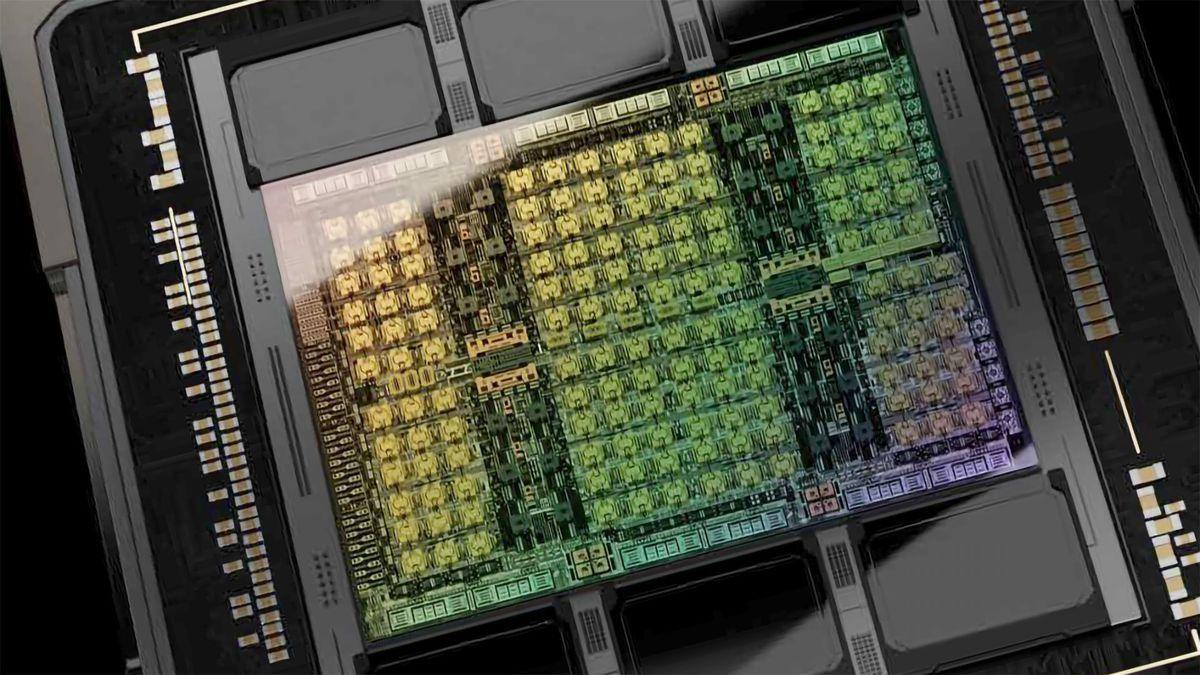Huawei Challenges Nvidia's AI Dominance by Open-Sourcing Ascend GPU Software Toolkit
3 Sources
3 Sources
[1]
Huawei is making its Ascend AI GPU software toolkit open-source to better compete against CUDA
Huawei is getting better at making AI GPUs. Now it wants to increase adoption of its technology on the software side Huawei has greenlit a plan to open-source its CANN software toolkit for its Ascend AI GPUs. According to the South China Morning Post, Huawei is making this move in order to better compete against Nvidia and its closed-source CUDA software ecosystem. Open-sourcing CANN, or Compute Architecture for Neural Networks, could further speed up developer innovation and improve the usability of Huawei's Ascend AI GPUs. Furthermore, Huawei has reportedly already held talks with China's leading AI players, business partners, universities, and research institutions on how to build an open-sourced Ascend ecosystem. CANN is a heterogeneous computing architecture that provides multi-layer programming interfaces to help users build AI applications tailored to Huawei's Ascend AI GPUs. At a high level, it's Huawei's version of CUDA, which provides the same interfaces for Nvidia GPUs. Huawei's decision to open-source its CANN software kit could further enhance China's effort to build self-sufficiency from Western chipmakers and help incentivize developers to build software for its Ascend AI GPUs. The performance of those chips is catching up to Nvidia's Blackwell B-series GPUs in the right environment. Nvidia is notorious for keeping its CUDA programming language a closed-off "moat" or "swamp", a trait that has been a key frustration for developers for years. CUDA is a tightly bound ecosystem that has very little support beyond Nvidia's own hardware, forcing developers to use Nvidia GPUs exclusively if they want to build software in CUDA. There have been initiatives like ZLUDA that have attempted to bring CUDA functionality to other GPU vendors (through a translation layer), but they have largely been unsuccessful due to pushback by Nvidia. Nvidia banned the use of translation layers in 2024, starting with CUDA version 11.6. Making CANN open-source could provide Huawei with an accelerated avenue to adoption for its homebrewed software toolkit. However, it will likely take years before CANN will approach the maturity of CUDA, which has been around for nearly 20 years and has been constantly updated since its release.
[2]
Huawei releases AI toolkit to weaken NVIDIA's hold on developers
Huawei Ascend AI chip is on display during a Huawei Data Infrastructure Summit. Huawei Technologies is opening up its core AI development toolkit, CANN. The Compute Architecture for Neural Networks powers applications built for the company's Ascend AI chips. By making it open-source, Huawei hopes to attract more developers and challenge NVIDIA's dominance, just as Beijing seems to be turning up the heat on the US chip giant. "This will speed up innovation from developers and make Ascend easier to use," said Eric Xu Zhijun, Huawei's rotating chairman, at the company's developer conference in Beijing on Tuesday.
[3]
From hardware to software, Huawei pushes Ascend AI GPUs into the open-source arena, challenging two decades of Nvidia dominance in AI computing ecosystems
Huawei has announced plans to make its CANN software toolkit for Ascend AI GPUs open source, a move aimed squarely at challenging Nvidia's long-standing CUDA dominance. CUDA, often described as a closed-off "moat" or "swamp," has been viewed as a barrier for developers seeking cross-platform compatibility by some for years. Its tight integration with Nvidia hardware has locked developers into a single vendor ecosystem for nearly two decades, with all efforts to bring CUDA functionality to other GPU architectures through translation layers blocked by the company. CANN, short for Compute Architecture for Neural Networks, is Huawei's heterogeneous computing framework designed to help developers create AI applications for its Ascend AI GPUs. The architecture offers multiple programming layers, giving developers options for building both high-level and performance-intensive applications. In many ways, it is Huawei's equivalent to CUDA, but the decision to open its source code signals an intent to grow an alternative ecosystem without the restrictions of a proprietary model. Huawei has reportedly already begun discussions with major Chinese AI players, universities, research institutions, and business partners about contributing to an open-sourced Ascend development community. This outreach could help accelerate the creation of optimized tools, libraries, and AI frameworks for Huawei's GPUs, potentially making them more attractive to developers who currently rely on Nvidia hardware. Huawei's AI hardware performance has been improving steadily, with claims that certain Ascend chips can outperform Nvidia processors under specific conditions. Reports such as CloudMatrix 384's benchmark results against Nvidia running DeepSeek R1 suggest that Huawei's performance trajectory is closing the gap. However, raw performance alone will not guarantee developer migration without equivalent software stability and support. While open-sourcing CANN could be exciting for developers, its ecosystem is in its early stages and may not be anything close to CUDA, which has been refined for nearly 20 years. Even with open-source status, adoption may depend on how well CANN supports existing AI frameworks, particularly for emerging workloads in large language models (LLM) and AI writer tools. Huawei's decision could have broader implications beyond developer convenience, as open-sourcing CANN aligns with China's broader push for technological self-sufficiency in AI computing, reducing dependence on Western chipmakers. In the current environment, where U.S. restrictions target Huawei's hardware exports, building a robust domestic software stack for AI tools becomes as critical as improving chip performance. If Huawei can successfully foster a vibrant open-source community around CANN, it could present the first serious alternative to CUDA in years. Still, the challenge lies not just in code availability, but in building trust, documentation, and compatibility at the scale Nvidia has achieved.
Share
Share
Copy Link
Huawei announces plans to open-source its CANN software toolkit for Ascend AI GPUs, aiming to compete with Nvidia's CUDA and foster a new AI development ecosystem.
Huawei's Strategic Move in AI Software
Huawei Technologies has made a significant announcement in the world of AI computing by deciding to open-source its Compute Architecture for Neural Networks (CANN) software toolkit for Ascend AI GPUs. This move is seen as a direct challenge to Nvidia's long-standing dominance in the AI computing ecosystem, particularly its closed-source CUDA platform
1
.Understanding CANN and Its Implications

Source: Interesting Engineering
CANN is Huawei's heterogeneous computing architecture that provides multi-layer programming interfaces for developers to build AI applications tailored to Huawei's Ascend AI GPUs. It serves as Huawei's equivalent to Nvidia's CUDA, offering similar functionality but with the added benefit of being open-source
3
.By making CANN open-source, Huawei aims to:
- Accelerate developer innovation
- Improve the usability of Ascend AI GPUs
- Create an alternative to Nvidia's closed "moat" ecosystem
Eric Xu Zhijun, Huawei's rotating chairman, stated at the company's developer conference in Beijing, "This will speed up innovation from developers and make Ascend easier to use"
2
.Building an Open Ecosystem
Huawei has already initiated discussions with China's leading AI players, business partners, universities, and research institutions to build an open-sourced Ascend ecosystem. This collaborative approach could potentially lead to the rapid development of optimized tools, libraries, and AI frameworks for Huawei's GPUs
1
.Performance and Adoption Challenges

Source: Tom's Hardware
While Huawei's AI hardware performance has been steadily improving, with claims that certain Ascend chips can outperform Nvidia processors under specific conditions, raw performance alone may not guarantee developer migration. The success of CANN will largely depend on its ability to support existing AI frameworks, particularly for emerging workloads in large language models (LLM) and AI writer tools
3
.Related Stories
Broader Implications and Challenges
Huawei's decision to open-source CANN aligns with China's broader push for technological self-sufficiency in AI computing, potentially reducing dependence on Western chipmakers. This move becomes particularly significant in light of U.S. restrictions targeting Huawei's hardware exports .
However, CANN faces significant challenges:
- Maturity gap: CUDA has been refined for nearly 20 years, while CANN is relatively new.
- Ecosystem development: Building trust, documentation, and compatibility at Nvidia's scale will take time.
- Developer adoption: Convincing developers to switch from the well-established CUDA ecosystem will be challenging.
The Road Ahead
While open-sourcing CANN presents an exciting opportunity for developers and could potentially offer the first serious alternative to CUDA in years, its success will depend on Huawei's ability to foster a vibrant open-source community and provide robust support for the platform. The move marks a significant shift in the AI software landscape, but only time will tell if it can truly challenge Nvidia's long-standing dominance in the field
3
.References
Summarized by
Navi
[1]
[2]
Related Stories
Recent Highlights
1
Google Gemini 3.1 Pro doubles reasoning score, beats rivals in key AI benchmarks
Technology

2
ByteDance's Seedance 2.0 AI video generator triggers copyright infringement battle with Hollywood
Policy and Regulation

3
ChatGPT cracks decades-old gluon amplitude puzzle, marking AI's first major theoretical physics win
Science and Research








